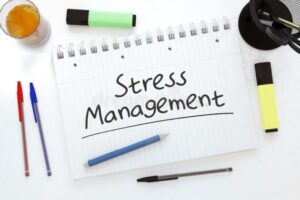In this fast-paced world with constant struggles and unhealthy habits, almost every one of us has suffered from overwhelming depression leading us to opt for harmful coping mechanisms and hazardous substances. Such substances include alcohol and illicit drugs and can lead to reliance disorder that develops after frequent, repeated use, and that typically includes a yearning of the drug intake, difficulties to control the usage despite being aware of the detrimental consequences, and sometimes a physical withdrawal state. The life of such substance addicts revolves around social isolation, drugs, or suicidal thoughts, exploiting their work, relationships, and causing chronic health conditions in the process. There are several ways to counter drug addiction, and many people succeed in doing so as they recover through various channels; however, there are some who suffer from severe substance abuse relapse. While some undergo slight changes in their health, others may face consistently high risks of relapse triggered by the structural and functional brain alteration as a result of the chronic hazardous substance use.
Throughout the journey of recovery, you can assist your loved ones in many ways. From enrolling them in an outpatient detox program to encouraging them to participate in peer groups, you can play an invaluable role in keeping hope alive and supporting your fellows in this challenging process of retrieval.
Enroll Them In Outpatient Detox Program
Detoxification is the first step towards successful recovery as it is the process of clearing toxic substances from the body. Many people refer the inpatient hospital detoxification with various medications involved; however, each has its potential jeopardies. Therefore, we advise you if your substance abuse relatives are medically stable and keen to participate in synchronized treatment services to recover from their withdrawal symptoms, then they should opt for the outpatient detox program. During this program, the patients are given awareness about the recovery process and treated along with proper counseling sessions individually as well as with their family, friends, and peer groups. Talk about Texas, various detox centers in Houston provide professional, confidential, and affordable care, treatment strategies, and medical monitoring for substance abusing and chemically dependent individuals with their trained staff. Detox programs expedite a safe and supportive environment during a potentially challenging and depressing time.
Identify The Signs And Speak Up
Different people face different risks; some are episodic disorders, while others show prominent relapse symptoms altogether, while others lead to mental conditions. These relapse symptoms not only disturb your professional life, but they also disrupt your personal life. You must always monitor your loved ones’ medical condition, identify the red flags, and take action before they deteriorate. There are three phases of relapse, emotional, mental, and physical. Each stage has its unique signs that may include stress, anxiety, depression, significant appetite fluctuating, problems concentrating, changes in sleep patterns, to name a few. If these warnings are addressed timely, then the chances of the occurrence of relapse become less. Speak to them so they can share their thoughts and then settle for treatment.
Encourage Participation In Peer Groups
There are times when one needs somebody to understand their conditions and feelings, needs, and wants. Since mental health disorder link with drug addiction and relapse, these groups also deal with Depression and Bipolar Support Alliance. Therefore, it is crucial to encourage your loved ones who are involved in substance abuse to enroll in a peer support group so that they can create a sober peer network and can engage in meaningful and structured activities unlike before.
Keep Hope Alive
The people who love and support you are the ones who keep you going throughout life. They act as catalysts in your life that lead you towards betterment. You must keep their hope alive so they can try again, handle their depression, and control their addiction. Providing someone with an ear to listen and a shoulder to support, no matter their overwhelming behaviors and situations, is undeniably an empowering experience. Being empathic towards people who face relapse can fuel their efforts and motivation, changing their world completely.
Conclusion
In conclusion, substance abuse is rather rampant across the globe. According to an estimation, 275 million people consume illicit drugs with lasting impressions on their health. Moreover, some 31 million people across the world suffer from drug use disorder, according to the World Health Organization (WHO). Millions of drug addicts around the world need to recover, while many of those who are on this journey often undergo severe relapse. Family and friends can play a dynamic role in helping their loved ones cope during these testing times. Whichever option you choose, always remember that recovery is a two-way process; therefore, the patient needs to cooperate and be willing to engage in treatments. You can try to counter the negativity in their minds and reinforce positivity within them.




